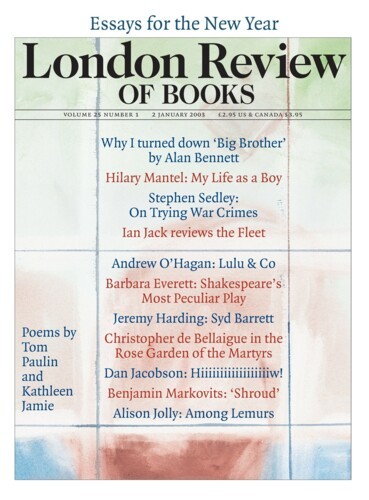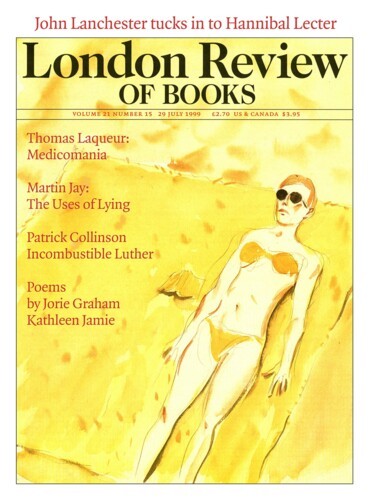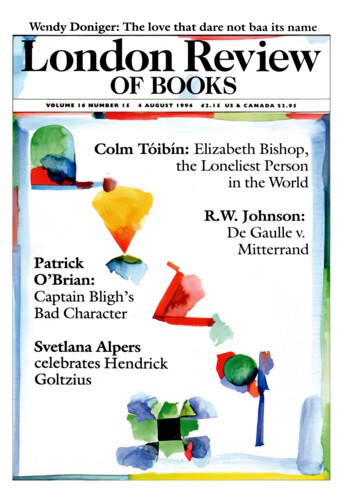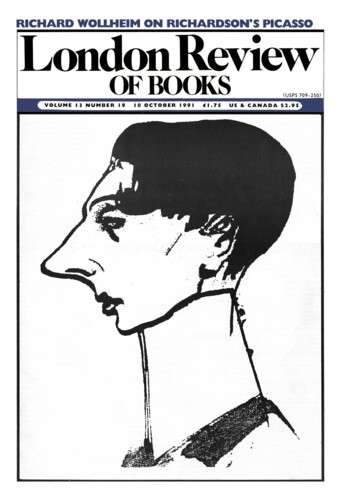‘Adjustment, no matter how comfortable it appears to be, is never freedom.’ David Reisman said that in The Lonely Crowd, a work of academic/pop sociology, published in the US in the late Forties; much read and remarked on at the time, and now forgotten. I looked it up the other day when I was due to say something at the South Bank Centre in connection with the Cities on the Move exhibition at the Hayward. Reisman divided social behaviour into three categories: ‘anomic’, ‘adjusted’ and ‘autonomous’. ‘Anomie’ is bad – everyone knows that – and something that has long been associated with urban life. But who could be sure, as David Reisman was, that an ‘autonomous’ citizen, no matter how uncomfortable, was better off than one who had taken the trouble to adjust – unless they’d told themselves that adjustment was un-American, the sort of feebleness Charlton Heston might despise? And if you could choose one or other way of being which would you go for? And where would you live?’‘
I was born, not long before the Second World War, in the United States, where until the age of nine I lived in a succession of different towns and states, of which New York was the last, the place from which I left the country for good. I didn’t know at the time that we weren’t going back; and it was only later that it occurred to me that I’d spent the rest of my childhood in some sort of exile.





